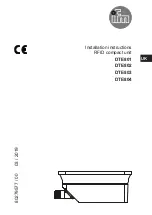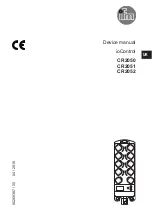
The Ssparge Arm™
Principles of Operation
①
Continuous sparging usually results in better extraction rates. Sparging is a
process where the sugars created during the mashing process are separated
from the grain.
②
A common mis-conception is that sparging is simply a rinsing process. While
there is rinsing, the more important aspect of sparging is displacement of the
wort with water. This takes time to essentially push the heavy wort out of the
bottom of the rain matrix. The sparging must be a slow and gentle process
for best results.
③
Best practice is to first Vorlauf the wort, which will set the grain bed to
become a filter bed, thus reducing the particulates of grain which will make it
into the boil kettle. This process can be accomplished with a recirculation
system or simply by drawing off pitchers of wort at a time, and gently reintro-
ducing it into the mash tun.
④
During the Vorlauf process, wort should be slowly pulled from the bottom, and
reintroduced to the tun until it is flowing clear. You want to work the wort
down to a volume where there is about 1” of wort covering a more compact
grain bed.
⑤
Sparge water is gently added, as necessary to keep the mixture of wort and
water at the 1” level, as the wort is drawn off the bottom. This process
demands more attention by the brewer, but can produce a higher yield.
⑥
Sparging can be done by either gravity feed or using a small pump with a flow
control valve. In either case, you will connect the Sparge Arm to the Hot
Liquor Tank.
⑦
Included with your Sparge Arm are three different Flow Discs to allow
selection of the best flow rate for your specific situation.
⑧
In addition to the selection of the Flow Disc, you can fine tune the flow rate by
“tightening” the Sparge Nozzle to pinch the Flow Disc.
⑨
It’s recommended to perform a test run with your particular setup. There are
many variables, and you’ll have the best results will if you do a practice run
before you brew.




















